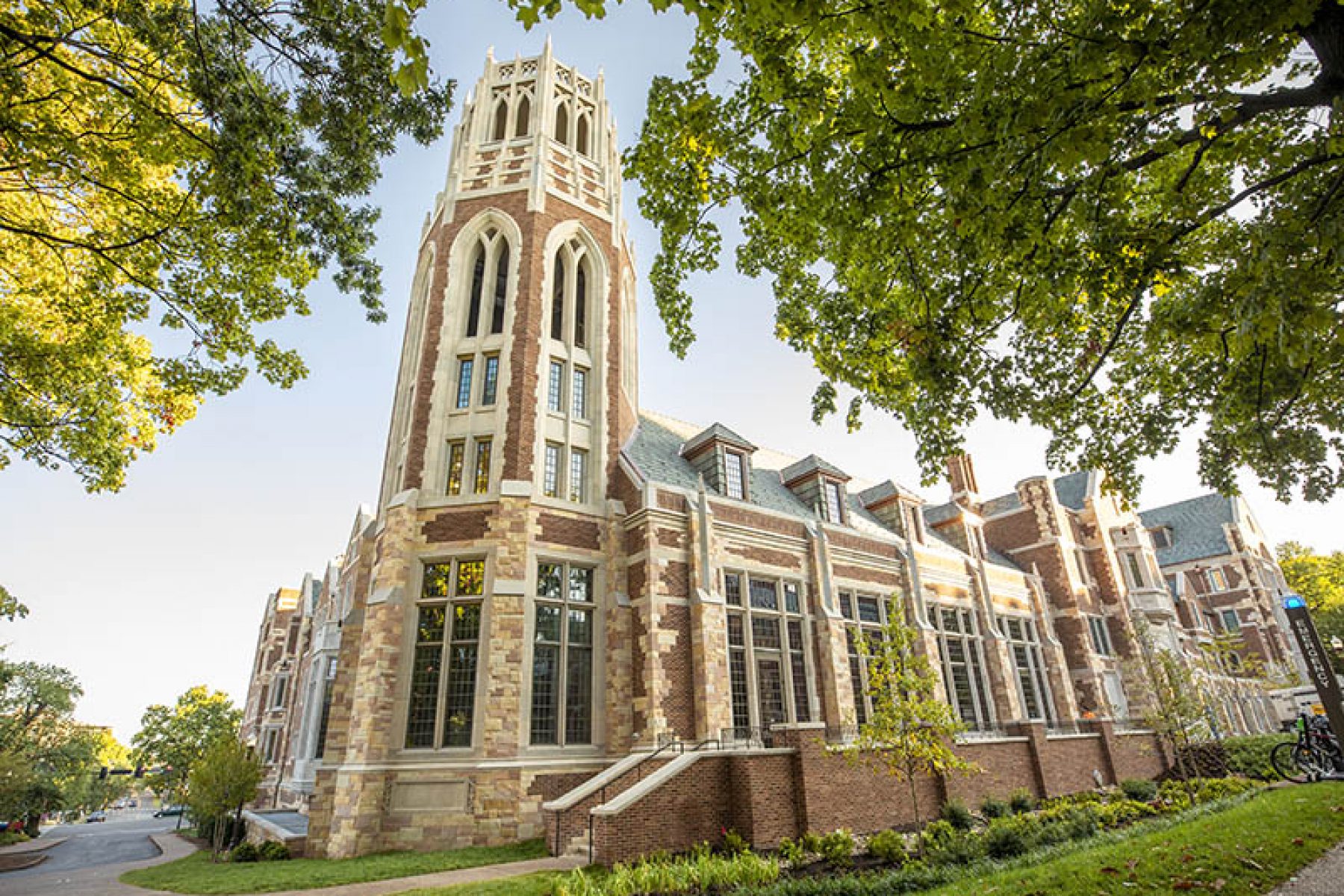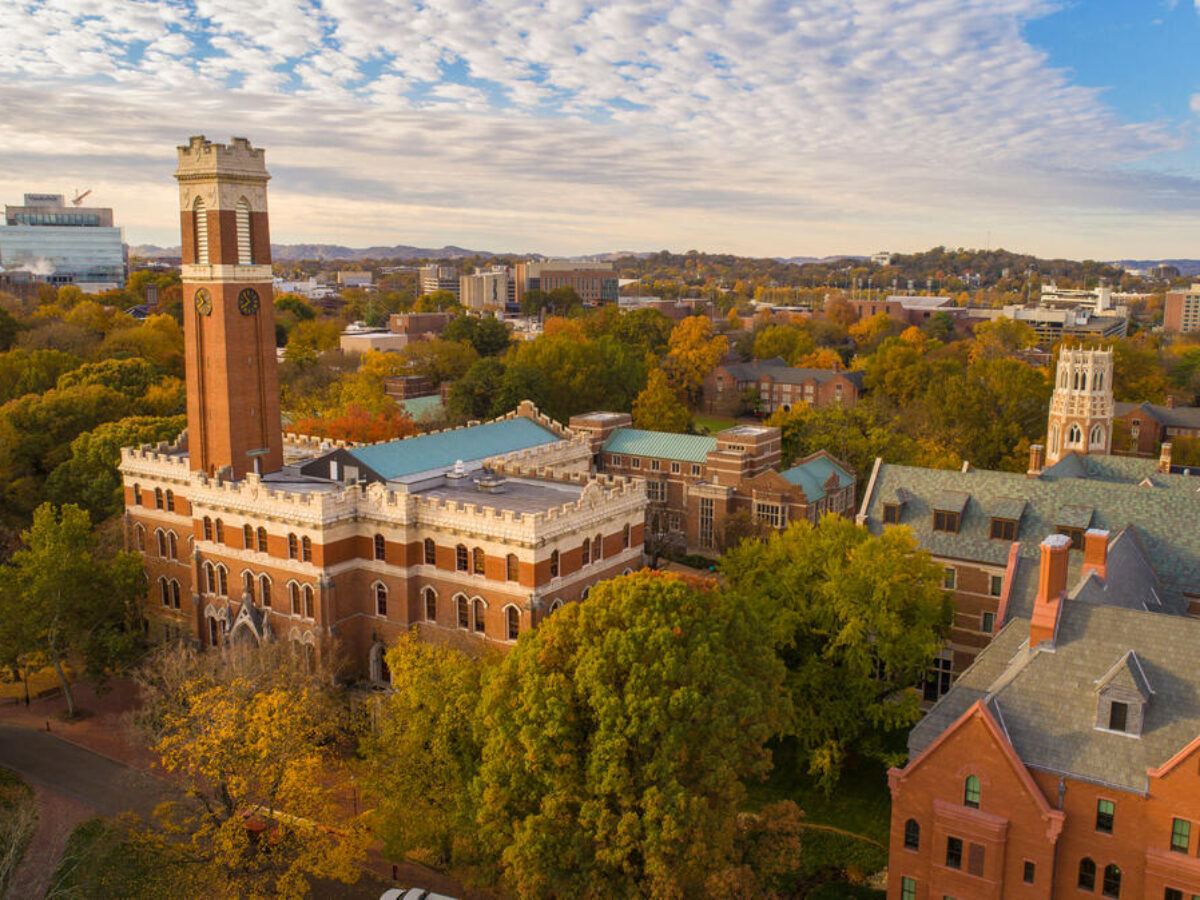Exploring Vanderbilt Biochemistry - Academic Discoveries
When thinking about a place that really pushes the boundaries of what we know about life at its most basic levels, Vanderbilt University often comes to mind, especially for those curious about the chemical processes within living things. This institution, a private research university located in Nashville, Tennessee, provides a unique setting for deep scientific exploration. It is a place where curious minds can truly dig into the tiny building blocks that make up everything around us, from the smallest cell to the largest creature, and understand how they work together, you know, at a molecular scale.
The university, as a matter of fact, has a long history of intellectual pursuit and a strong commitment to learning, which makes it a rather inviting spot for anyone wanting to get serious about science. It offers a wide array of choices for study, with over 70 undergraduate fields and a complete collection of higher-level and specialized academic credentials spread across ten different colleges and schools. This broad academic offering means that someone interested in Vanderbilt biochemistry has plenty of ways to shape their education, perhaps blending it with other areas of science or even different subjects entirely, so they can get a really well-rounded view.
For someone thinking about where to study the intricate details of life's chemistry, Vanderbilt presents itself as a spot where academic standards are quite high, and a spirit of open inquiry is truly valued. The university's background, going back to its establishment in 1873, shows a consistent dedication to scholarship and developing new knowledge. This historical grounding, along with its present-day focus on investigation, creates an atmosphere where students of Vanderbilt biochemistry can feel supported as they work to figure out the very small pieces that make up living systems, like, how cells function or how diseases develop, for instance.
- Sexxt Red Leaked
- Burke Landscape Supply
- Columbus Busted Magazine
- Clank Clank Clank Crunch
- Uom Blackboard
Table of Contents
- What Makes Vanderbilt Biochemistry a Good Choice?
- How Does Vanderbilt Biochemistry Fit into the University's Offerings?
- Is the Academic Pace at Vanderbilt Biochemistry Challenging?
- The Vanderbilt Family's Legacy and its Connection to Scientific Study
- Vanderbilt Health - A Practical Link for Biochemistry Students
- Encouraging Broad Study for Vanderbilt Biochemistry Students
- How Does the Vanderbilt School of Engineering Support Scientific Fields Like Biochemistry?
- The People Behind Vanderbilt Biochemistry - Faculty and Staff
What Makes Vanderbilt Biochemistry a Good Choice?
When considering where to pursue studies in life sciences, particularly the chemistry of living things, many factors come into play. Vanderbilt, you know, has a setting that is quite active, being in an urban area, and its main campus stretches out over 333 acres. This size and location mean that students studying Vanderbilt biochemistry have access to both a vibrant city and a dedicated academic space where they can focus on their studies. The university's commitment to research means there are usually many opportunities for students to get involved in actual scientific work, which is very helpful for a subject like biochemistry that relies so much on laboratory practice and discovery. It's a place where you can really get your hands dirty with science, so to speak.
The university's overall approach to learning, which encourages students to explore different subjects, is something that truly benefits someone studying Vanderbilt biochemistry. This way of thinking helps students see how their specific area of study connects with other scientific fields, and even with non-science subjects. For instance, understanding the ethical considerations of new biochemical discoveries might involve looking into philosophy or public policy. This broader view, in a way, prepares students not just to be good scientists, but also to be thoughtful individuals who can make a real difference in the world, addressing important problems through their knowledge of molecular processes.
The sheer breadth of academic options available, with those 70 undergraduate majors and all the higher-level qualifications, means that a student focusing on Vanderbilt biochemistry can find many pathways to specialize or broaden their interests. Perhaps they might want to combine their main study with something like computer science to work on bioinformatics, or with a public health focus to understand disease prevention at a molecular scale. This flexibility, quite honestly, allows for a very personal and powerful educational experience, letting students shape their learning to fit their own curiosities and future goals, which is pretty cool.
How Does Vanderbilt Biochemistry Fit into the University's Offerings?
Vanderbilt University, with its extensive list of academic programs, offers a truly comprehensive educational experience. Biochemistry, for example, finds its place among a wide array of scientific and humanistic pursuits. This means that students pursuing Vanderbilt biochemistry are not isolated in their scientific corner; instead, they are part of a larger academic community that values broad learning and interdisciplinary connections. This integration allows for a richer exchange of ideas and perspectives, which is, in some respects, quite beneficial for tackling complex scientific questions that often require insights from multiple areas of knowledge.
The university's structure, with its ten different schools and colleges, provides a framework where specialized fields like biochemistry can thrive while still being connected to the wider academic mission. A student in Vanderbilt biochemistry might find themselves taking classes in the medical school or collaborating with researchers in the engineering school, all within the same institution. This kind of interconnectedness means that the resources available to biochemistry students are not limited to just one department but can draw from the entire university's intellectual and physical assets. It's like having access to a whole network of expertise, which is really helpful for scientific discovery.
The emphasis on offering a full range of graduate and professional degrees alongside undergraduate majors means that the academic environment is always pushing for new discoveries. This continuous pursuit of advanced knowledge creates a dynamic setting for Vanderbilt biochemistry students, who can benefit from being around faculty and older students who are actively engaged in cutting-edge research. It means, you know, that the learning isn't just about what's already known, but also about what's being figured out right now, which can be quite inspiring for someone just starting their scientific path.
Is the Academic Pace at Vanderbilt Biochemistry Challenging?
Many students wonder about the intensity of the academic atmosphere at a university like Vanderbilt, and it's a fair question, particularly for a demanding field like biochemistry. The institution is known for its commitment to high academic standards, which naturally suggests that the coursework and expectations are set at a rigorous level. For students in Vanderbilt biochemistry, this means engaging with complex concepts and putting in a good amount of effort to grasp the material thoroughly. It's not a place where you can just coast by, you know, if you want to truly succeed and make discoveries.
However, this challenge isn't about making things unnecessarily difficult; it's about pushing students to truly understand and apply their knowledge, which is, honestly, a good thing for future scientists. The academic environment encourages a spirit of intellectual freedom, which means students are given space to ask tough questions and explore new ideas, even if they go against conventional wisdom. This freedom, combined with the high standards, helps foster independent thinkers who are well-prepared to contribute to the scientific community. It's a setting where critical thinking is really valued.
The pursuit of excellence in all endeavors, a core value at Vanderbilt, means that students in fields like biochemistry are encouraged to do their very best, not just in their studies but also in their research and other academic pursuits. This can certainly make the academic pace feel quick at times, but it also means that the support systems, including dedicated faculty and resources, are usually in place to help students meet these expectations. So, while it might be demanding, the goal is to equip students with the skills and knowledge they need to truly make an impact, which is, in a way, the whole point of higher education.
The Vanderbilt Family's Legacy and its Connection to Scientific Study
The story of Vanderbilt University is deeply intertwined with the history of the Vanderbilt family, an American family that gained considerable influence during a period of great economic growth in the country. Their initial success, as a matter of fact, came from the shipping and railroad businesses built by Cornelius Vanderbilt. This family's historical prominence and their original endowment laid the groundwork for the establishment of the university, creating an enduring institution dedicated to learning and discovery. While their direct involvement was in commerce, the creation of a major research university certainly provided a foundation for all kinds of scientific exploration, including areas like biochemistry.
The initial gift from Cornelius Vanderbilt, a significant sum for its time, was intended to help heal the wounds of the Civil War by strengthening education in the South. This act of philanthropy, in a way, set a precedent for investing in institutions that could advance society through knowledge. For fields such as Vanderbilt biochemistry, this historical backing means that the university was built on a principle of progress and intellectual advancement. The legacy isn't just about money; it's about the idea that education and research are powerful tools for betterment, which is quite inspiring for those working on scientific problems.
Even though the family's direct involvement with the university has changed over time, their founding spirit of investment in future generations through education continues to resonate. The university's ability to attract talented faculty and students, and to build impressive research facilities, can be traced back to these foundational acts. So, while the original focus might not have been specifically on molecular science, the very existence and continued growth of a place where Vanderbilt biochemistry can flourish is, in some respects, a continuation of that early vision for a strong academic center.
Vanderbilt Health - A Practical Link for Biochemistry Students
Vanderbilt Health, a major part of the university's overall reach, plays a significant role in the local community by providing medical care and, as a matter of fact, is here to help people get better quickly. With numerous locations offering convenient hours throughout Middle Tennessee, it provides a very tangible connection between academic science and real-world application. For students pursuing Vanderbilt biochemistry, this close relationship with a leading medical center offers quite a few practical benefits and opportunities that can enhance their academic journey and future career paths.
The presence of a large, active health system means that there are often research opportunities that bridge the gap between basic science and clinical practice. Students of Vanderbilt biochemistry might find themselves involved in projects that aim to understand the molecular basis of diseases, develop new diagnostic tools, or even work on creating new treatments. This kind of hands-on experience, you know, allows them to see how the theoretical knowledge gained in classrooms and labs translates into tangible improvements in human health, which is incredibly motivating for many young scientists.
Furthermore, the collaboration between the university's academic departments and Vanderbilt Health creates an environment where interdisciplinary research is a common occurrence. A biochemistry student might work alongside medical doctors, public health experts, or engineers on a shared project. This kind of teamwork helps students develop a broader understanding of how science fits into the larger picture of healthcare and provides valuable experience in working across different professional fields, which is, in a way, essential for addressing today's complex health challenges.
Encouraging Broad Study for Vanderbilt Biochemistry Students
At Vanderbilt, there is a strong encouragement for students to study across different subjects, a philosophy that truly helps them pursue their interests and discover new approaches to tackle problems and make a positive mark on the world. This approach is particularly valuable for students interested in Vanderbilt biochemistry, as the field itself is inherently connected to many other scientific disciplines. It's not just about memorizing facts; it's about seeing how different pieces of knowledge fit together, which is, honestly, a more effective way to learn and innovate.
For example, a student passionate about understanding how medications work at a molecular level might combine their biochemistry studies with courses in pharmacology or even computer modeling. Someone interested in environmental issues might blend biochemistry with environmental science to study how pollutants affect biological systems. This freedom to mix and match subjects means that students can create a truly unique academic path that aligns with their personal passions and career aspirations, which is pretty cool.
The university even provides tools, like a "find your major" guide, to help students explore the many different academic paths available. This resource helps students see how their initial interests might lead them to a specific field like Vanderbilt biochemistry, or how biochemistry itself can be combined with other areas to create a specialized focus. This support for exploring options helps students make informed choices about their education, ensuring they find a program that truly excites them and prepares them for future contributions, which is, in some respects, the main goal of a university education.
How Does the Vanderbilt School of Engineering Support Scientific Fields Like Biochemistry?
The Vanderbilt School of Engineering has developed over many years, thanks to the remarkable contributions and backing from former students, instructors, parents, and supporters. This sustained growth and dedication to engineering principles have created a robust environment that, as a matter of fact, indirectly benefits scientific fields such as Vanderbilt biochemistry. While engineering focuses on design and building, the foundational sciences, including biochemistry, are often integral to many engineering applications, especially in areas like biomedical engineering or materials science.
Today, the School of Engineering is driven by a desire to innovate and take on big challenges. This spirit of pushing boundaries often leads to collaborations with other scientific departments, including those focused on the chemistry of living things. For example, engineers might work with biochemists to develop new sensors for detecting biological molecules, or to create novel drug delivery systems. This kind of interdisciplinary work means that students in Vanderbilt biochemistry might have access to advanced tools and perspectives from the engineering side, which can greatly enhance their research capabilities.
The shared commitment to discovery and problem-solving between engineering and the life sciences creates a dynamic academic landscape. Students interested in the practical applications of their biochemical knowledge might find opportunities to work on projects that involve both fields. This cross-pollination of ideas and methods is, in a way, very beneficial for developing well-rounded scientists who understand not only the fundamental principles of biochemistry but also how those principles can be applied to create new technologies and solutions for real-world issues.
The People Behind Vanderbilt Biochemistry - Faculty and Staff
Vanderbilt is more than just buildings and programs; it is, quite honestly, a community made up of very talented staff and faculty members. These individuals are the driving force behind the university's academic achievements and its reputation as a leading research institution. For students engaged in Vanderbilt biochemistry, this means learning from and working alongside experts who are at the forefront of their respective fields, which is a truly invaluable part of the educational experience.
The university's location in Nashville, Tennessee, as a private research institution, means it attracts a diverse group of academics and professionals from around the globe. This variety of backgrounds and experiences enriches the learning environment for everyone, including those studying the chemistry of life. Students in Vanderbilt biochemistry benefit from different teaching styles, research approaches, and perspectives on scientific problems, which helps them develop a broader and deeper understanding of their subject, you know, beyond just what's in the textbooks.
The collective commitment of this community to the highest academic standards, coupled with a strong belief in intellectual freedom and a continuous pursuit of excellence, creates an atmosphere where scientific inquiry can truly flourish. This dedication means that students in Vanderbilt biochemistry are not just taught facts; they are encouraged to think critically, question assumptions, and contribute their own ideas to the scientific conversation. It's a place where curiosity is not just allowed, but genuinely celebrated, which is, in some respects, the ideal setting for any budding scientist.

Vanderbilt University

Office of Undergraduate Education | Vanderbilt University

Vanderbilt University | Omicron Delta Kappa